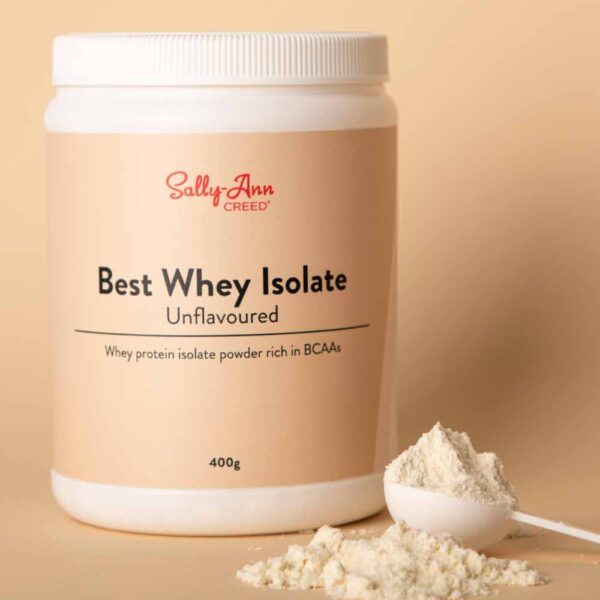These functions are vital for the following reasons:
- Antibody production, essential to combat infection, chemical toxins and allergies. Research shows that antibody deficiency is a common phenomenon in those with gluten sensitivity. Lack of these vital proteins puts you at risk for multiple chronic health issues.
- Muscles are required for movement of the frame. As part of this process, muscle serves as a pumping system for your lymphatic vessels. These vessels are crucial because they help the body transport immune cells and antibodies. They also help remove damaging toxins. Research also shows that a large majority of those with gluten sensitivity have poor muscle to fat ratios.
Gluten Destroys Muscle & Causes Protein Wasting
One of the most common side effects of gluten is inflammation in the muscles and joints, as gluten proteins create an inflammatory reaction in these tissues that over time leads to many negative outcomes such as:
- Muscle pain
- Muscle atrophy (loss)
- Joint pain and arthritis
- Weight gain (increased visceral fat – especially belly fat)
- Weight loss (due to muscle atrophy) – the worst kind of weight loss
- Restricted mobility
- Increased risk for injury in those trying to exercise
Gluten consumption leads to body protein disruption in several ways and prevents speeding up your healing:
- Inflammation – Gluten can cause the immune system to literally attack the muscle and joints leading to chronic pain and inflammation. A prolonged immune system attack contributes to chronic degradation of these tissues and subsequently atrophy of the muscle and arthritis in the joint.
- Hormone Release – To deal with this chronic damage, the body produces cortisol as an anti-inflammatory hormone.
- Increased cortisol leads to increased visceral fat (belly fat).
- Damage to the Stomach and GI Tract – Gluten can damage the specialized cells in your stomach and small intestines that secrete vital acid and digestive enzymes. Over time this damage makes it almost impossible to properly digest and break down dietary proteins from meats and vegetables. Many with gluten sensitivity have lost their ability to digest properly and develop protein and amino acid deficits.
Many who embark on a gluten free diet still have inflamed and damaged gastrointestinal tracts. Some suffer with low acid production making it hard to digest dietary proteins. This is a big part of the “Catch 22″ in healing. To heal the gut, you need protein, but to digest the protein, you need a healthy and functional gut.
Protein balance plays a major role body function. It is essential for proper maintenance of the immune system, the detoxification systems in the liver, antibody formation, muscle maintenance, tissue repair, digestive enzyme production, neurotransmitter (brain chemicals), and hormone production. Protein is responsible for building cellular receptors that help recognize hormones, regulate blood sugar, control our circadian rhythm, and control our metabolism.
Excessive carbohydrate intake causes damage to important proteins in our bloodstream. This damage, often referred to as AGE (Advanced Glycation End products) is a major contributing factor to inflammation and chronic illness. Chronic inflammation leads to hormone changes that tax our body’s protein stores and our ability to heal and repair is minimized.
Unfortunately, most protein powders contain cheap and highly processed ingredients that is harder to digest and damaging to health. Others are full of artificial sweeteners and GMO chemicals like aspartame, sucralose, corn fructose, and maltodextrin. And forget the rice based proteins – they are devoid of nutrients, low in biologically valuable amino acids, have a high potential for arsenic contamination and most importantly contain a concentrated and very difficult to digest type of rice gluten. Other common protein options contain foods with severe allergenic potential. The most common include dairy, soy, and egg.
Dairy is usually a major problem for those with gluten sensitivity. Aside from it’ s allergic potential, most dairy proteins are heat processed and derived from GMO cows being fed GMO grains covered in chemical fertilizers and pesticides. These chemicals are known gut irritants and have been shown to alter the microbial gut balance and contribute to intestinal permeability (leaky gut).
Soy proteins are high in phytates and tannins (compounds that inhibit mineral absorption – calcium, iron, zinc). Most soy proteins are also GMO and have been treated with chemical pesticides plus soy is a death-knell for the thyroid gland. Egg protein replacement powders are typically derived from chickens being fed diets high in GMO grain sources. The birds suffer from poor environmental conditions and those who are gluten sensitive often react to eggs from grain fed chickens.
If you want a high quality protein without the drawbacks to help support your recovery and overall health, I recommend Pure Hydrolysed Collagen. Start with one scoop a day and progress to two scoops. My Pure Hydrolysed Collagen is non-GMO, grass-fed and pure, it has all you need to heal your gut. There are no carbs or calories, it won’t spike blood sugar/insulin, and is free of hormones and antibiotics. Mix it into water, coffee or tea once or twice a day, it will heal the gut in double quick time.








